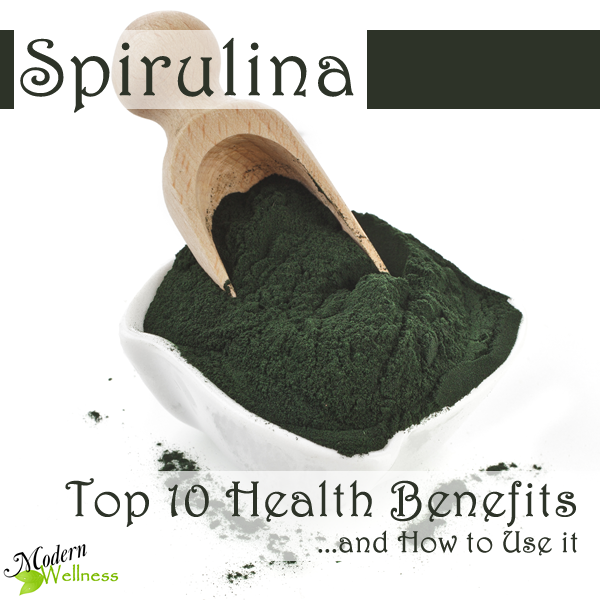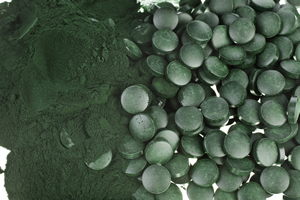Top 10 Health Benefits of Spirulina

“Superfood” is a buzz word that flies around these days like crazy and is used to classify a lot of different foods. The Oxford Dictionary definition states a superfood is “a nutrient-rich food considered to be especially beneficial for health and well-being”. There are really only a handful of foods that I would actually classify as a “superfood” though. Spirulina happens to be one of them and is probably one of the ones that is not commonly known.
What is Spirulina?
Spirulina is cultivated worldwide and the easiest laymen’s way of describing what it is would be to call it blue-green algae. When used as a dietary supplement it can come in tablet, flake, or powder form. Until the 1600’s the Aztecs and other Mesoamericans used Spirulina as a food source. It was found in abundance in Lake Texcoco (in Mexico) in the 1960’s and started being cultivated on a large scale in the 1970’s.
What Health Benefits Does Spirulina Offer?
- Spirulina not only has large amounts of protein (between 51-71%) but it’s also a complete protein that contains all essential amino acids. It is superior to the typical plant proteins, such as from legumes.
- It is a very good source of bio-available iron. If you’re anemic or pregnant this is a great supplement to add to your diet.
- Spirulina contains Omega-3 and Omega-6. Omega’s are helpful in reducing inflammation and also feeding the brain.
- This is probably an easy one to figure out but Spirulina is also high in Chlorophyll. The great thing about chlorophyll is that it helps the body detox the blood and boost the immune system.
- Spirulina is also a good source of Vitamin A, C, E, K, Thiamin, Riboflavin, Niacin, B6 & B12, Folate, Calcium, Iron, Magnesium, Copper, and Potassium. (Hence, the reason why I would consider it a true superfood).
- It is high in antioxidants which helps to inhibit the aging process.
- Spirulina is good at binding to heavy metals to help flush them from your system.
- Many have said it is helpful with weight loss and as an appetite suppressant.
- Spirulina has been shown to encourage and support the growth of healthy bacterial flora in your gut, which can help keep candida overgrowth under control.
- In an allergy study Spirulina consumption significantly improved the symptoms and physical findings, including nasal discharge, sneezing, nasal congestion and itching.
How do you use Spirulina?
 First, before you start taking Spirulina make sure you’re getting it from a reliable source. As with most things I do recommend you find a non-GMO, organic source if possible. You can find such varieties online as well as at health food and natural grocery stores.
First, before you start taking Spirulina make sure you’re getting it from a reliable source. As with most things I do recommend you find a non-GMO, organic source if possible. You can find such varieties online as well as at health food and natural grocery stores.
- You can purchase it in a powder form and add it to drinks and smoothies. This is my favorite way of using it (I add it to my smoothie everyday). To me it tastes a little like burnt almonds. My husband says it tastes different to him. Either way it’s a great addition to diet!!
- As noted above you can also get it in a tablet form and swallow it like any other supplement.

You must be logged in to post a comment.